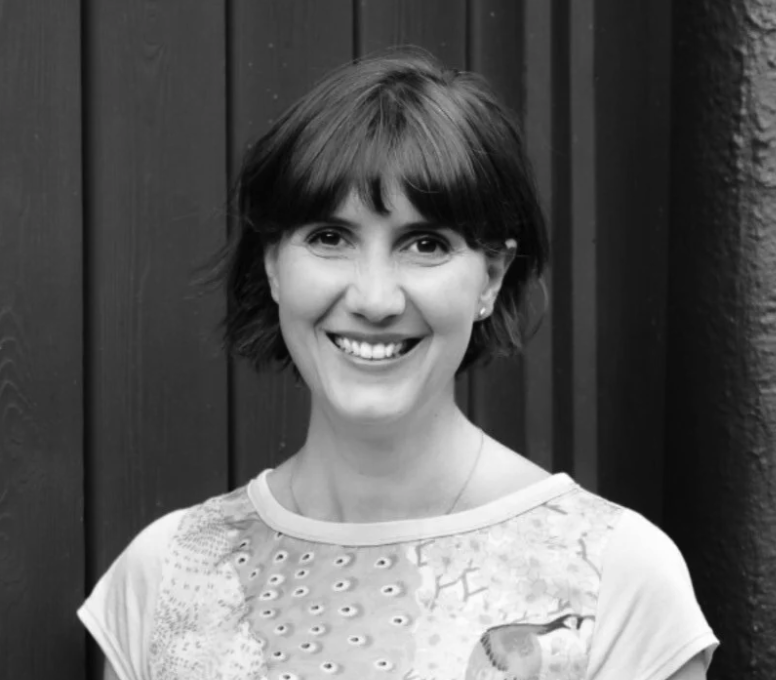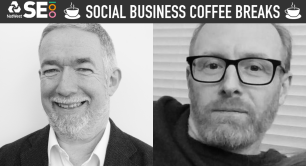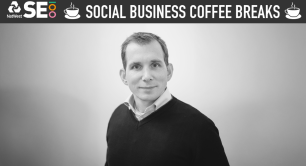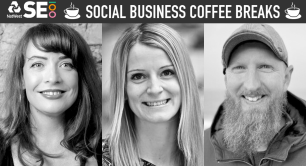How to navigate leadership change: 'You won't have all the answers - but be clear on what you are there right now to do'
Leadership transitions can be pivotal moments in an organisation's journey. How to make them a success? In our latest SE100 Social Business Coffee Break webinar, Zoe Whyatt, CEO of social enterprise lettings agency Homes for Good, and Victoria Papworth, CEO of social investor NatWest Social and Community Capital, share their experiences of taking over the leadership of established organisations, the challenges they overcame and the lessons they’ve learned along the way.
What is it like to become the new boss of an established social business? How to make leadership change a success for your organisation? This was the topic of our latest SE100 Social Business Coffee Break webinar, hosted by Pioneers Post in partnership with NatWest Social and Community Capital.
Speaking at the webinar, hosted by Pioneers Post’s founding editor Tim West, were Zoe Whyatt, CEO of social enterprise letting agency Homes for Good, who took over from founder Susan Aktemel in October 2024; and Victoria Papworth, who became CEO of social investment charity NatWest Social and Community Capital two years ago. Papworth was previously director of the Coutts Institute, director of programmes and development for UK Community Foundations and on the business development team at Locality, the UK’s membership organisation for community organisations.
 Following an extensive career leading businesses and nonprofits, Whyatt (pictured) became a consultant to support purpose-led organisations with their strategy and growth. When considering a new role, Whyatt advises to “think about what you want to learn in your next job”. Because she got to know Homes for Good through her consultancy work, she had “some real clarity on what [she] could learn”.
Following an extensive career leading businesses and nonprofits, Whyatt (pictured) became a consultant to support purpose-led organisations with their strategy and growth. When considering a new role, Whyatt advises to “think about what you want to learn in your next job”. Because she got to know Homes for Good through her consultancy work, she had “some real clarity on what [she] could learn”.
Papworth says that while many of her peers were talking about “stepping stone jobs” – positions that might not be the job they really wanted but that would offer the skills and the expertise needed to then move into another role – she didn't feel comfortable taking that approach. Instead, “I very clearly looked for an organisation that I thought would be a good fit for me, and I would be a good fit for,” in terms of marrying both her values and experience, she says. But timing remains important: “There's something about how you grasp that opportunity when it comes along.”
The right balance
For both speakers, the first months in their respective organisations were all about finding the balance between “taking stock” – listening to team and board members – and providing clarity on the direction they wanted to take.
Papworth’s (pictured) approach at first was to “move slowly and not break things” and learn to know her team. But she also remembers enjoying a board meeting soon after she started, where she could “set the tone and the tempo” and give an idea of what her leadership style would be like. Having been hired with a “mandate” for change, much of her work was to manage the board’s expectations, she remembers.
Whyatt, having worked with Homes for Good as a consultant, already knew the team. Communication was essential: Susan Aktemel, the founder, was keeping a role in the company, so Whyatt had to be very clear about what roles she would take on.
She advises new leaders to deal with “hot potatoes” – those complex issues that no-one wants to tackle but are making everyone’s jobs harder – straight away. This demonstrates effectiveness and builds trust from the outset, she argues.
Helping team members, early on, to understand how you make decisions will also make a difference in the long term, explains Whyatt. “Then, when other things are happening in the organisation, people's assumptions will be more likely to be correct about you.”
People are inevitably and very naturally keen to understand what changes you want to make and how that affects them
Communicating about how a new strategy will affect your team’s everyday job is key, the speakers argue. “As a leader,” says Whyatt, “you're thinking about strategy, you're thinking about lots of different moving parts at all times, but a person in a team isn't thinking about that broad stretch of things. They're thinking about their job and what they're doing, and they want to do a good job.”
Papworth agrees: “People are inevitably and very naturally keen to understand what changes you want to make and how that affects them, and what that will mean for their work… It's really important to respect that. And while sometimes your head can be in the clouds with making changes [and] adapting the strategy, it's just worth really reflecting on how that plays out in very human terms.”
—
SE100 Social Business Coffee Breaks are delivered by Pioneers Post in partnership with NatWest Social & Community Capital, NatWest bank's independent social investment charity, as part of the learning and networking programme developed for the SE100 and WISE100 Awards community. This four-part webinar series will address different elements of building bold and resilient social enterprises, drawing on the insights of experienced leaders in our networks and equipping our audience with practical tools and open space for questions.
| Ready to invest in independent, solutions-based journalism?
Our paying members get unrestricted access to all our content, while helping to sustain our journalism. Plus, we’re an independently owned social enterprise, so joining our mission means you’re investing in the social economy. |




